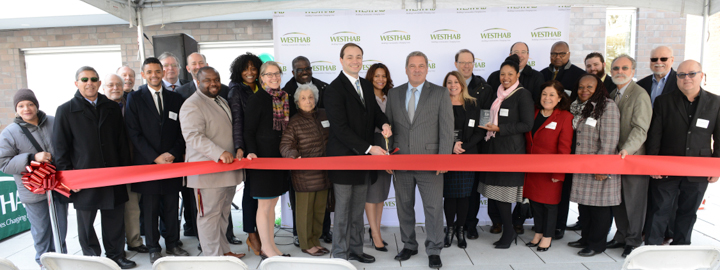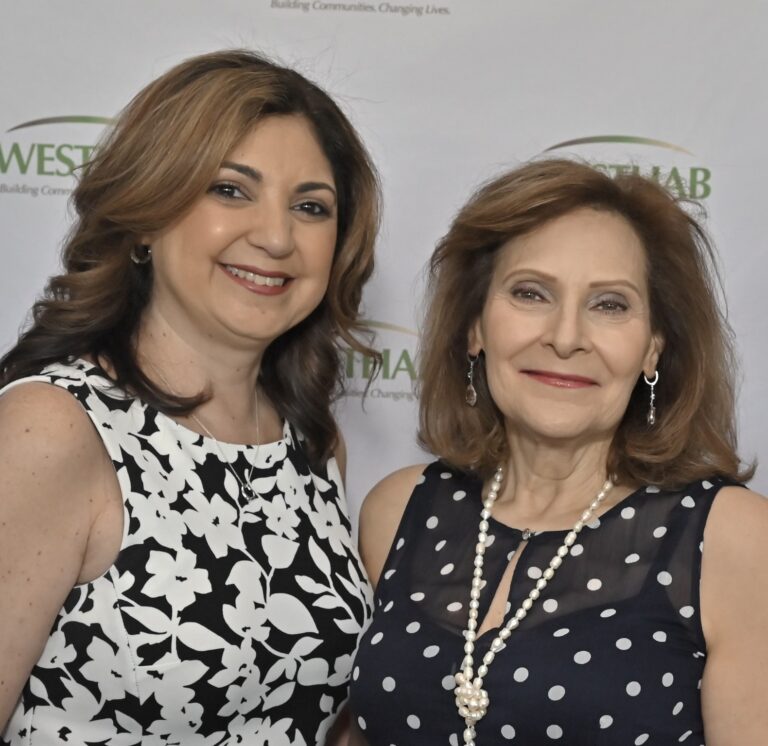
When Legislation Isn’t Enough—10 Ways Westhab Goes Above and Beyond for Fair Housing

Background on the Federal Fair Housing Act:
Enacted in 1968, the Federal Fair Housing Act prohibits discrimination in the sale, rental, and financing of housing on the basis of race, religion, national origin, and sex. It’s critical to equality in housing, but barriers to entry remain—particularly in rental housing. Federal Fair Housing legislation doesn’t stop landlords from raising their standards for tenant selection far outside the reach of the average family. Landlords may require applicants to have a significant rental history or superior credit or may use other legal (but unethical) methods to weed out applicants they deem undesirable. These barriers to renting disproportionately impact low-income households, those with disabilities, and people of color, making it extremely difficult for these groups to obtain quality affordable housing.
How Westhab is changing the game:
Westhab has a different approach. The way Westhab markets its projects and screens prospective residents for housing is designed to level the playing field and ensure all households are considered equally and fairly. Westhab knows its applicants are more than a credit score, minor criminal offense from years earlier, or even a prior eviction.
A great example of this approach is the recent marketing of Dayspring Commons, Yonkers’ newest fair and affordable housing project in Nodine Hill. Nodine Hill has suffered from decades of divestment resulting in a lack of accessible housing opportunities. But demand for housing, particularly quality affordable housing, remains high. This means there is intense competition for housing, and landlords less scrupulous than Westhab can have their pick of potential tenants. Here are ten ways that Westhab, with the assistance of the Housing Action Council, is creating a more equitable system through the early marketing of Dayspring Commons and the screening of applicants.
- Westhab conducts widespread marketing efforts, including a variety of ad sources over four counties and New York City’s five boroughs, intended to target those households underrepresented in the primary market area.
- Underrepresented populations are notified of the new housing opportunity through Westhab’s outreach to community-based groups who have direct access to those least likely to apply for our housing.
- Marketing materials are provided in English, Spanish, and Mandarin to reach as many people as possible.
- Marketing materials are shared with public and private agencies serving disabled populations to help raise awareness of an opportunity to apply for fully accessible housing.
- All Westhab team members who take part in the screening of applicants receive annual fair housing training and have tools and policies on hand to guide them as they direct an applicant through the screening process.
- Unlike most conventional landlords, Westhab’s screening does not automatically eliminate those with low credit or no credit score. It also looks past tenant-landlord court history.
- Westhab has a variety of ways in which a resident can prove their ability to pay the rent on time, rather than a one size fits all approach such as a credit report.
- When running a potential tenant’s credit report, we filter out medical bills and student loans, which often aren’t a great indicator of an applicant’s ability to pay their rent on time.
- For prospective tenants who are justice-involved, Westhab staff utilizes and completes a worksheet to determine if the applicant has shown evidence of rehabilitation and good conduct.
- Westhab applicants are given the opportunity to formally appeal a denial and to have their application reviewed by a supervisor.
Westhab’s marketing goal is to reach a diverse population—for whom the doors of traditional rental housing are so often closed regardless of fair housing legislation. Westhab believes that this process helps further fair housing by allowing those with low credit, no credit history, or justice-involvement access to rental housing often not available to them through the conventional market. To truly further fair housing we have to contemplate the spirit and intention of fair housing legislation. This doesn’t mean simply complying with fair housing law. Westhab makes the conscious decision to go above and beyond to develop processes that increase access for those left behind by traditional marketing and screening processes. It would be easy to let a computer algorithm tell us whether or not someone is fit to reside in our housing, but we understand the negative impact that has on the people we serve.
Westhab supports fair housing legislation. Even though it isn’t perfect, it has created paths to housing that didn’t exist prior to 1968, and its enforcement remains critical to furthering equal access to housing. However, Westhab will continue to go above and beyond what is legally required in its efforts to further fair housing through our marketing and screening practices. Westhab recently completed the marketing of Dayspring Commons and is looking forward to welcoming home its first-ever tenants this Summer.

